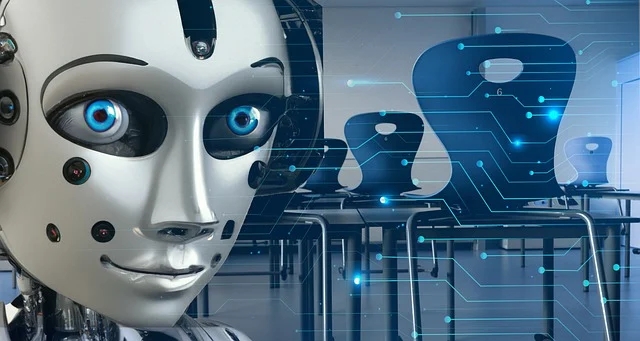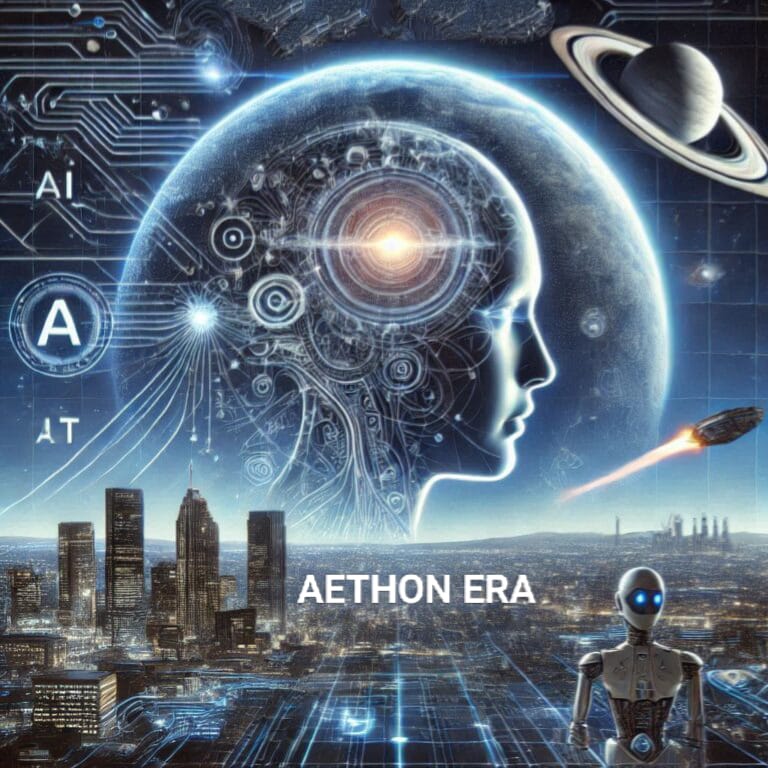In today’s rapidly evolving world, the career landscape has been significantly transformed by groundbreaking advancements in technology, particularly in the fields of artificial intelligence, robotics, and space exploration. As we step into the future, the career opportunities that await us in 2043 are both exciting and diverse. This article explores the diverse and exciting career paths that await us, from artificial intelligence and robotics to space exploration and beyond.
1. The Emergence of a Global Language
In the not-so-distant future, our interconnected world, often referred to as the “global village,” is poised to witness yet another significant transformation—a global language that transcends borders and unites nations. The rapid pace of technological advancement, particularly in the realm of artificial intelligence (AI), is driving the development of a universal language comprehensible to people from every corner of the globe. This linguistic evolution will not only shape the way we communicate but also create new career opportunities for future generations.
Breaking down Language Barriers
The development of a global language is not about replacing existing languages but rather about breaking down communication barriers. This universal language will serve as a bridge, allowing individuals from diverse linguistic backgrounds to communicate effortlessly.
The Role of Artificial Intelligence
Artificial intelligence will be at the heart of this linguistic revolution. AI algorithms will analyze and synthesize the vast pool of linguistic data from different languages, enabling the creation of a new, easily comprehensible language.
The Implications for Individuals
Learning the Global Language
As this universal language becomes the lingua franca of the global village, individuals seeking knowledge and maintaining a social media presence will need to learn it. Much like learning English today, mastering this language will become essential for effective communication on a global scale.
Career Opportunities
The emergence of a global language will bring forth a plethora of career opportunities:
Language Instructors
Professionals skilled in teaching the global language will be in high demand. Language instructors will play a crucial role in facilitating its adoption across the world.
Content Translators
While the global language will promote universal communication, there will still be a need for content translation between languages. Content translators will ensure that information is accessible to everyone, regardless of their linguistic background.
Language Technologists
The development and maintenance of the global language will require language technologists who specialize in AI-driven language evolution and refinement.
Knowledge Transfer
Books and knowledge resources from various languages will be translated into the global language. This massive knowledge transfer will provide opportunities for individuals to work as translators, researchers, and curators of this vast repository of global wisdom.
The dawn of a global language is on the horizon, propelled by the relentless pace of technological innovation, particularly in the field of artificial intelligence. As individuals from around the world seek to connect, share knowledge, and engage on social media platforms, learning this universal language will become a necessity.
2. Navigating the Age of Artificial Intelligence
Artificial intelligence (AI) has been a driving force in shaping the world of work, and in 2043, it will continue to be the base for countless career opportunities.
AI Specialists will Revolutionize the Future
AI specialists will be in high demand as they craft and implement advanced AI systems across various industries. These experts will play a pivotal role in designing the algorithms that power everything from autonomous vehicles to intelligent virtual assistants.
Ethical Guardians of AI will Safeguard the Future
As we step into the year 2043, the ethical implications of artificial intelligence (AI) have never been more pressing. With AI integrated into nearly every aspect of our lives, the role of AI ethicists will become increasingly vital. These ethical guardians will serve as the moral compass for AI technologies, ensuring that they adhere to strict ethical guidelines and do not pose harm to society.
The Evolving Role of AI Ethicists
AI ethicists will be at the forefront of AI development, bridging the gap between technological advancement and ethical responsibility. Their roles will be multifaceted, encompassing a range of critical functions:
- Ethical Framework Development
AI ethicists will collaborate with interdisciplinary teams to establish comprehensive ethical frameworks for AI systems. These frameworks will define the boundaries of acceptable behavior, setting guidelines for AI decision-making and interactions with humans.
2. Bias reduction
One of the foremost concerns in AI development is bias. AI systems can inadvertently perpetuate biases present in their training data. AI ethicists will work tirelessly to identify and minimize these biases, ensuring that AI technologies treat all individuals fairly and equitably.
3. Responsible AI Deployment
AI ethicists will play a pivotal role in the decision-making process regarding when and how AI technologies are deployed. They will assess the potential societal impacts, ethical implications, and risks associated with AI applications, providing guidance on responsible implementation.
4. Continuous Monitoring and Evaluation
The ethical oversight of AI does not end at deployment; it is an ongoing process. AI ethicists will monitor AI systems in real-time, evaluating their performance, and addressing ethical concerns as they arise. This dynamic approach ensures that AI remains aligned with ethical standards throughout its lifecycle.
5. Ethical Education and Advocacy
AI ethicists will also engage in public outreach and education, raising awareness about the ethical challenges posed by AI. They will advocate for transparency, accountability, and responsible AI practices among tech companies, policymakers, and the general public.
The Ethical Dilemmas of 2043
In 2043, AI will have infused nearly every aspect of our lives, from autonomous transportation and healthcare diagnostics to personalized education and virtual companions. With such widespread AI integration, ethical dilemmas will become increasingly complex and multifaceted:
- Privacy vs. Convenience
AI systems will offer unparalleled convenience but may raise concerns about privacy intrusion. AI ethicists will work to strike a balance between the benefits of AI-driven convenience and safeguarding individual privacy rights.
2. Autonomous Decision-Making
As AI systems gain autonomy, they may make critical decisions without human intervention. Ethicists will grapple with questions about accountability and the potential for AI to make morally significant choices.
3. Job Displacement
The automation of jobs by AI and robotics will be a reality in 2043. Ethicists will address the ethical challenges surrounding job displacement, advocating for retraining and societal support for affected individuals.
4. Ethical Use of AI in Healthcare
AI will play a pivotal role in healthcare, from diagnosis to treatment recommendations. AI ethicists will ensure that patient data privacy is maintained, and that AI is used ethically in medical decision-making.
A Pivotal Role in Shaping Tomorrow
In conclusion, AI ethicists in 2043 will be instrumental in shaping a future where AI and technology coexist harmoniously with ethical principles. Their roles will extend far beyond mere oversight, encompassing the development of ethical frameworks, bias mitigation, responsible deployment, continuous monitoring, and public advocacy. As we navigate the ever-evolving landscape of AI, these ethical guardians will stand as protectors of our values, ensuring that AI serves humanity’s best interests without compromising on ethics. In a world driven by technology, the ethical guardians of AI will be the moral compass that guides us towards a brighter and more ethically conscious future.
3. The Dawn of Robotics
Robots are no longer confined to science fiction; they are integral to our daily lives. In 2043, this technology will create numerous career opportunities.
Robotics Engineers
Robotics engineers will design, build, and maintain robots for various applications, from surgical assistance in hospitals to autonomous vehicles on the streets.
Human-Robot Collaboration Experts
Professionals skilled in human-robot interaction and safety will be essential, ensuring that humans and robots can work together seamlessly.
4. Exploring the Space Frontier
As 2043 approaches, humanity’s fascination with space will lead to a host of intriguing career prospects.
Space Tourism Takes Off
Commercial space travel will be a reality, opening doors to jobs in space tourism, spacecraft design, and space travel agencies.
Colonizing New Worlds
With plans to establish colonies on Mars and the Moon, careers in planetary science, terraforming, and space colonization will gain prominence.
Space Physicians
Space physicians are medical professionals trained to provide healthcare to astronauts during space missions. They monitor astronauts’ health, conduct medical experiments, and address medical emergencies in the challenging space environment. Space physicians typically have a background in aerospace medicine and undergo specialized training for space healthcare.
Space Pharmacists
Space pharmacists are experts in pharmaceuticals and their effects on astronauts’ health in space. They manage medication supplies, ensure drug safety, and develop pharmaceutical protocols for space missions. Space pharmacists require pharmaceutical expertise along with knowledge of space-related health issues.
Space Dress Designers
Space dress designers are fashion professionals specializing in creating spacesuits and attire for astronauts. They design spacesuits that provide protection against extreme space conditions while ensuring comfort and mobility. Space dress designers combine fashion design skills with knowledge of space engineering and materials.
Space Infrastructure Developers
Space infrastructure developers are engineers and architects focused on designing and building structures and habitats for space exploration. They plan and construct space stations, lunar bases, and habitats for long-duration missions. Space infrastructure developers need expertise in aerospace engineering and architecture.
Space Vehicles Developers
Space vehicle developers are engineers specialized in designing spacecraft, rockets, and vehicles for space exploration. They create spacecraft that can withstand the harsh conditions of space and develop propulsion systems for interplanetary travel. Space vehicle developers require a strong background in aerospace engineering and propulsion technology.
5. A Green Future
In 2043, environmental consciousness will be at an all-time high. This shift towards sustainability will create opportunities for careers that combat environmental challenges.
Environmentalists will Protect Our Planet
Environmentalists will play a vital role in conserving the Earth’s ecosystems, advocating for sustainable practices, and addressing climate change.
Pollution Control Technique Developers
Innovators in pollution control techniques will find themselves in demand as they devise creative solutions to combat pollution and safeguard the environment.
Green Economists
Balancing economic growth with environmental sustainability will be paramount. Green economists will analyze and advocate for policies that benefit both the economy and the environment.
Modern Farmers
As the world grapples with food security, modern farmers equipped with cutting-edge technologies will play a pivotal role in ensuring a stable food supply.
Conclusion
In 2043, the career opportunities before us are as diverse and dynamic as the world we live in. From the domains of artificial intelligence and robotics to the endless possibilities of space exploration and the imperative mission of environmental sustainability, there is no shortage of avenues to explore. Embrace the future with an open mind and a willingness to adapt, for the world of work in 2043 promises to be a thrilling and rewarding journey into the unknown. So, prepare to step into a world where the future is yours to shape and conquer.
For future generations, this linguistic shift will not only be a means of communication but also a gateway to exciting career prospects. Language instructors, content translators, language technologists, and knowledge custodians will be at the forefront of this linguistic revolution, shaping a world where communication knows no boundaries.
In the evolving landscape of our global village, the global language will serve as a unifying force, bringing people together and opening doors to new career opportunities. It is a future worth embracing, where the ability to communicate with anyone, anywhere, will redefine the way we learn, work, and connect.
Space professionals play critical roles in advancing human space exploration, ensuring the well-being of astronauts, and enabling the infrastructure necessary for future space missions. Their expertise is essential for the success and safety of space endeavors.
Green economy careers not only offer opportunities to make a positive impact on the environment but also contribute to building a sustainable and resilient future for generations to come. As the world continues to prioritize environmental conservation, these professions will play a crucial role in combating environmental challenges and shaping a more sustainable world.










